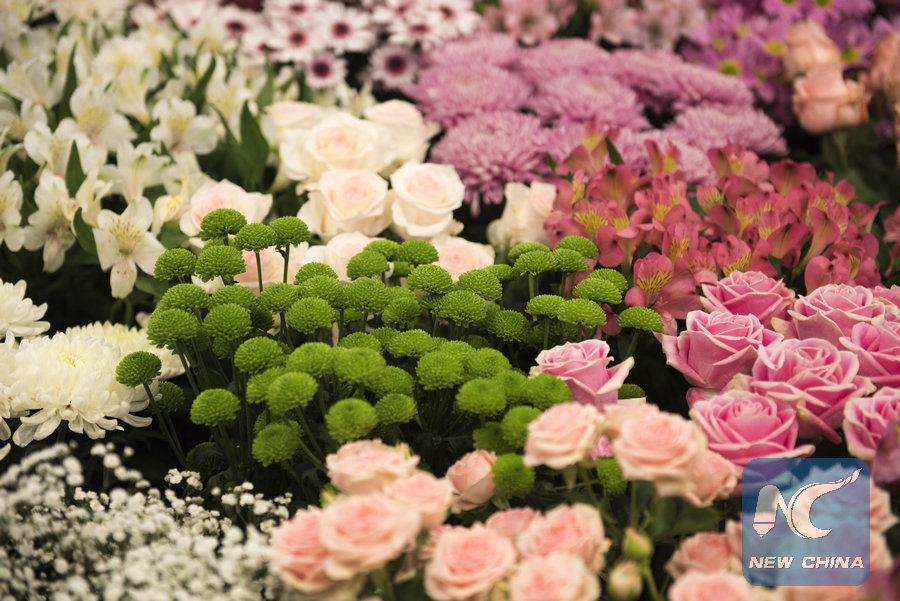
Flowers are exhibited during the fifth edition of International Floriculture Trade Expo in Nairobi, Kenya, on June 9, 2016. (Xinhua/Sun Ruibo)
NAIROBI, June 16 (Xinhua) -- Kenya may introduce a new variety of genetically modified cut flower following the application of rights to release it by a private company.
In a statement Thursday, the National Biosafety Authority (NBA), which regulates all activities involving genetically modified organisms, said it is in receipt of an application from Imaginature Ltd for environmental release and placing on the market of genetically modified Gypsophila cut flowers in Kenya.
If approved, Kenya will be the first pioneering nation in authorizing the production of GM-Gypsophila.
"The GM-Gypsophila has been improved through modern techniques by adding a few genetic elements responsible for new range of colors from dark purple and red to light pink colouration in flowers from a model plant called Arapidopsis," said NBA.
The characteristics of the flower, including the color change, have been done to fetch a higher price in the global market.
"The public is informed that other than the color change of the flower petals, no other alteration has been introduced in the GM-Gypsophila flowers," said the government agency.
Conventional Gypsophila flowers, also called Baby's breath, are predominantly white and are solely used for ornamental purposes.
"They are not consumed by humans or used as animal feed. These flowers are used as filler materials in flower arrangements and bouquets for in-door beautification," noted the authority.
The GM-Gypsophila varieties are expected to broaden Kenyan farmers' assortment of products, thus promoting their market position as they will be trading in unique products.
Also, the combination of higher price and increased volume are expected to increase farmers' annual income from Gypsophila stems.
In the first phase of production, the company based in Naivasha will grow the flowers for the U.S. market, among others.
Even as the country readies to release the flower, genetically modified products remain illegal in Kenya, with the government last month noting it is yet to put in place mechanism that would ensure the seed is not cross-pollinated, contaminating local varieties during the field tests.

